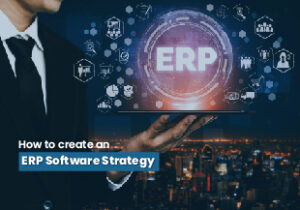What is SAP ERP? The Ultimate Guide for Businesses and IT Professionals
If you’re running a business or working in IT, you’ve probably heard the term “SAP ERP.” But what does it mean? What makes SAP ERP different from other systems? And how can it benefit your organization? Sit tight, because we’re about to break it all down! By the time you finish this post, you’ll have a solid understanding of SAP ERP and why it’s widely considered a game-changer in enterprise resource planning.
We’ll cover everything from the basic meaning of SAP ERP to its functions, applications, and how it’s used in payroll, accounting, customer relationship management (CRM), and more—especially if you’re managing operations in Pakistan or beyond.
SAP ERP Meaning
Put simply, SAP stands for Systems, Applications, and Products. When combined with “ERP,” or Enterprise Resource Planning, the phrase refers to SAP’s robust platform designed to manage and integrate core business operations in real-time.
SAP ERP systems consolidate essential functions like finance, supply chain, procurement, HR, and more into one integrated ecosystem, allowing businesses to run like a well-oiled machine.
Think of it as the central nervous system for your business—connecting various departments and processes into one seamless, efficient system.
What is SAP ERP?
SAP ERP is an enterprise software solution that businesses use to optimize their operations. Developed by the German company SAP SE, it’s trusted by businesses of all sizes across industries. Whether you’re a startup, an SME, or a multinational conglomerate, SAP ERP has something tailored for you.
SAP ERP isn’t just about managing internal processes—it’s about enabling collaboration, streamlining workflows, and providing decision-makers with actionable data.
For example:
- Finance Teams can track expenses, manage payroll, and generate real-time financial reports.
- Supply Chain Managers can coordinate production, inventory, and logistics.
- Human Resources can oversee employee data, performance tracking, and onboarding.
What is SAP Enterprise Resource Planning?
Wondering what makes SAP unique compared to other ERP systems? It’s the depth and flexibility.
SAP ERP offers comprehensive tools for almost every function a business needs:
- Advanced analytics for financial insights.
- Flexible modules for industry-specific needs in retail, manufacturing, and even public services.
- Scalability for growing businesses that need to add more functions without starting from scratch.
SAP ERP is like the Swiss army knife for corporate software—offering solutions for both small-scale businesses and wide-ranging enterprises.
Define ERP SAP – Why Is It so Essential?
“ERP” stands for Enterprise Resource Planning, but SAP ERP takes it to a whole new level. While traditional ERP systems only focus on integrating business processes, SAP ERP goes the extra mile by adding intelligent automation and advanced data analytics.
Here’s why businesses can’t stop talking about SAP ERP:
- Real-Time Data Access – Make fast decisions without waiting for someone to generate a report.
- Seamless Integrations – It syncs with other software like CRMs, payroll software, and accounting systems.
- International Presence – Features like multi-currency and multilingual support make it perfect for global operations.
Is SAP an ERP System?
YES! SAP is widely regarded as one of the most powerful ERP systems in the world. And more importantly, it’s more than just a “system”—it’s a solution.
Why? SAP ERP has built-in solutions for virtually every business challenge:
- Need to handle complex tax compliance? SAP has you covered.
- Want to integrate IoT (Internet of Things) into your supply chain? SAP can do that, too.
- Struggling to manage customer relationships? Their CRM module is top-notch.
SAP is an ERP System That Delivers Results
If you’re considering implementing SAP ERP for your business, you’re in good company. This system isn’t just popular—it’s trusted by millions of businesses worldwide. Companies rely on SAP ERP because it delivers quantifiable results:
- 30% reduction in manual errors (hello automation!).
- 20% faster inventory turnover, thanks to advanced supply chain tools.
- Improved employee satisfaction due to efficient HR functionalities like payroll and performance tracking.
Financial ERP Benefits
Managing your company’s finances can be overwhelming, especially if you are just transitioning from spreadsheets to software. SAP ERP’s Financial (FIN ERP) tools can help.
Key features include:
- Advanced real-time budgeting for better expense management.
- Detailed profit and loss reports for strategic decision-making.
- Automated payroll, payment processing, and compliance tools.
Did we mention the peace of mind? With SAP ERP, you won’t be chasing numbers—it streamlines all your accounting needs effortlessly.
CRM Like No Other
Using SAP ERP’s CRM (Customer Relationship Management) module can transform your customer interactions. Whether you’re nurturing leads or seeking to improve customer retention, SAP ERP’s CRM tools can help streamline activities like:
- Tracking customer preferences.
- Delivering personalized marketing.
- Monitoring sales pipelines in real-time.
Businesses that use SAP ERP’s CRM have consistently reported higher customer loyalty and improved sales performance.
Payroll Software in Pakistan – Why SAP ERP Is a Great Choice
If your business operates in Pakistan or hires employees locally, SAP ERP offers payroll solutions tailored specifically for the region’s legal and compliance needs.
Here’s why it stands out in Pakistani accounting:
- Automated compliance with local tax regulations.
- Support for Urdu language, multi-currency payments, and localization features.
- Seamless connection with HR modules for unified employee management.
It’s essentially a “set-it-and-forget-it” payroll system that ensures your employees are paid correctly and on time—every time.
Accounting Simplified
Gone are the days of double-checking ledgers. SAP ERP streamlines Pak accounting protocols by automating much of the day-to-day bookkeeping:
- Track income, expenses, and taxes in one platform.
- Ensure compliance with Pakistani accounting standards.
- Get real-time insights into your business’s financial health.
Most importantly, SAP ERP is trusted worldwide, so you know you’re in safe hands.
SAP ERP Definition Recap
At its core, SAP ERP is a trusted, all-in-one software platform for managing resources, tracking progress, and improving workflows across every aspect of your business. From payroll efficiency to scaling up your CRM efforts, SAP ERP is the secret weapon for businesses that want to grow smarter—not harder.
Actionable Next Steps
SAP ERP can feel overwhelming at first glance, but its benefits are immeasurable once implemented. If you’re ready to take the leap, start exploring SAP ERP today. Your team—and your bottom line—will thank you.
Need help getting started? Reach out to a local SAP consultant, or check out our resources for guidance tailored to your region.

